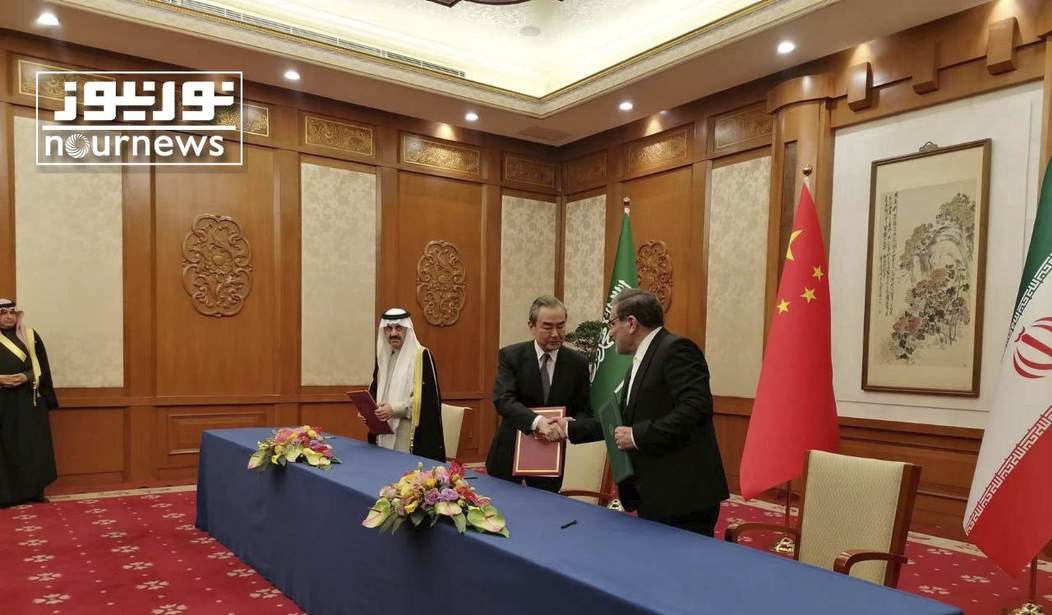Amid a major re-alignment of global powers – largely away from the U.S. and its allies and toward Russia and, more importantly, China – Washington D.C. is considering a re-alignment of U.S. interests and production.
Concerned that we just might be a little too dependent on China, it appears that the folks who run the nation’s capitol are finally looking at ways to cut our dependency on China and its ruling Communist party. Naturally, this comes at a time when tensions between Washington and Beijing are at an all-time high.
Via the Wall Street Journal:
The Group of Seven advanced democracies are growing concerned that China, a dominant supplier of many goods and materials, could similarly cut off key exports in the event of a conflict or another pandemic, according to top Western economic officials. They also worry that Western investment and expertise, if left unrestricted, could help develop Beijing’s military.
“So the lesson learned from that for all of us has been: Let’s do that hard work now on the front end,” Wally Adeyemo, deputy Treasury secretary, said.
But G-7 officials say they are also trying to avoid beggar-thy-neighbor steps that undermine global economic growth as they try to unify behind specific policy measures that reduce dependence on China. The G-7 comprises the U.S., Canada, France, Germany, Italy, the U.K. and Japan.
“The big strategic choice that we have is whether in seeking to strengthen our supply chain resilience…we do so in a way that tumbles the world back into protectionism,” Jeremy Hunt, the U.K.’s chancellor of the exchequer, said in an interview last week in Washington. He said Western allies should “work together as fellow democracies to improve that resilience.”
Never mind that the last President of the United States, Donald Trump, was very clear that we needed to cut dependence on China, and the administration that succeeded Trump came in with the aim of doing literally everything opposite of what Trump did and said. The amount of spite that Biden’s incoming team showed Trump-era policies, and worked to undo every policy and every bit of rhetoric that Trump committed to. Here were are, almost three years later, and they are just now realizing that maybe Trump was right and that China wields a little too much influence.
China has been working to undermine the U.S. dollar, and along with Russia and several South American nations, they have decided to stop utilizing the U.S. dollar as a reserve currency, threatening the dollar’s strength. But even while U.S. leaders meet with Taiwan’s president (and irritate Beijing in the process), there seems to be very little that Washington is willing to do in order to actually combat the economic influence of the Chinese and its new, developing power bloc.
It seems that bringing home manufacturing and energy independence are solutions that are still off the table as the far-left environmentalists continue to scream that we aren’t doing enough as a nation on that front. But we are still trying to essentially create a separate geopolitical economy to run counter to the one China is building. That is causing the International Monetary Fund to freak out, worrying about destabilization. But the U.S. is trying nonetheless.
Some allies broadly aligned with the U.S. goals have raised concerns about the Biden administration’s approach to reducing ties with China.
U.S. subsidies for clean-energy technology, primarily aimed at building up the industry outside of China, enraged European officials who argued that the new subsidies’ sourcing requirements put their companies at a disadvantage.
U.S. officials are trying to ease those complaints by putting together a series of trade deals to cooperate on procuring critical minerals through a buyers’ club. The Americans also are starting a forum on clean-energy incentives with the European Union to try to prevent a subsidies war.
None of the solutions Washington seems to want, however, seem likely to make much of a dent. But they will make people feel good? I guess that’s something.













Join the conversation as a VIP Member